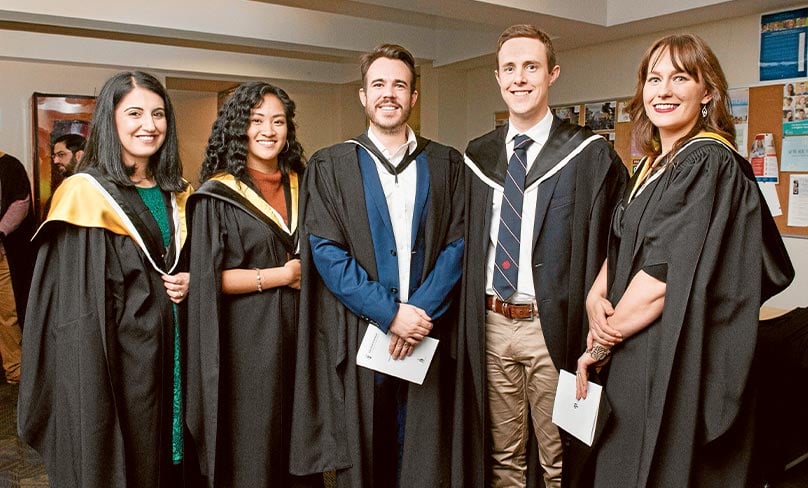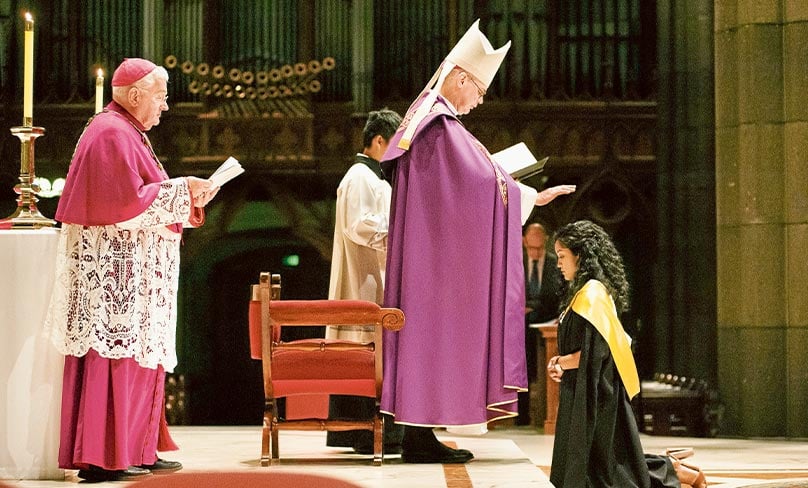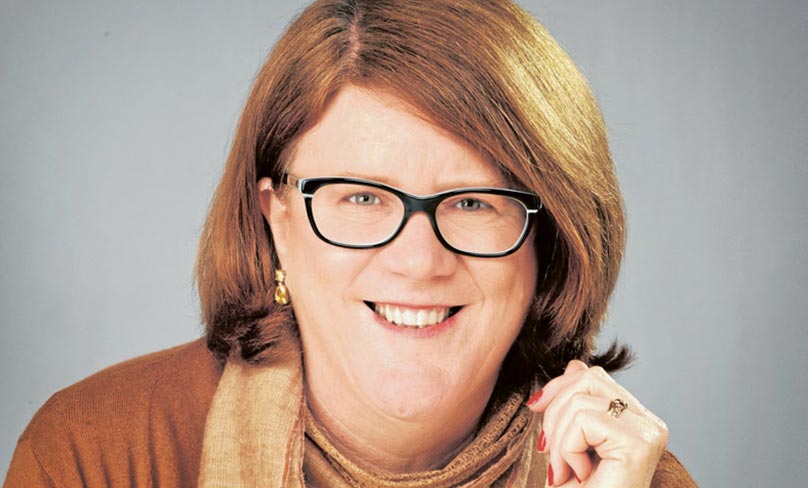
It seemed both fitting and especially poignant for staff and students that the final graduation ceremony of the Melbourne Session of The John Paul II Institute for Marriage and Family came on the eve of the memorial for the mighty Polish martyr-Bishop of Cracow, St Stanislaus (1030-1079).
Poignant and painful, because over 900 years later, the Australian incarnation of the Institute, founded and inspired by another Polish giant, bishop of Cracow and saint, should face the incomprehension and oversight not only of an increasingly alienated secular culture but also the inertia and lack of response from much of the bureaucratic machinery and hierarchy of the Catholic Church in Australia.
In his frank address to the staff and 19 of the over-33 final graduates, the Institute President from 2004-19, Bishop Peter Elliot, spoke of his awareness of the problems it faced in creating such a new academic entity in this country.
He also identified a political and cultural “undertow that would eventually bring about our closure.”
See related article: Closure of Melbourne John Paul II Institute appears surprising given Pope’s comments
He lamented further that, “The Institute was regarded only as an agency of the local Church and a drain on money, which is apparently wasted if spent on promoting Christian marriage, the family as the domestic church, relevant bioethics and sound religious education of the young.”
The bitter irony of this, in the Church’s current state, was not lost on those present.
Archbishop Peter Comensoli, who officiated at the Graduation and was installed to Melbourne in August 2018 as Archbishop and Institute President (after the process of the closure of the Institute had begun) said afterwards, that he sensed the frustration and pain mingled with the sense of achievement and joy on the faces of the students and staff.
He noted his “gratitude to the Lord” for the gift of the Institute and the great intellectual and cultural “seeds” that all associated with it would bring to the Church and to the world in the future.
There were, after all, many notable achievements, qualities and personalities associated with the Melbourne Institute.

It was, for example, the only theological establishment to have as Registrar a former officer of the Royal Marines, Lt Colonel Toby Hunter.
Bishop Elliot paid tribute to the widespread regard all hold for this remarkable man. “His communications with students leave absolutely nothing unclear,” Bishop Elliott said.
“His memory of past students is formidable; his understanding of the intricacies of the Institute is profound, and yet so, too, is his humility in the face of the haughty and the proud. We who have benefited from all this are deeply indebted to him.”
Bishop Elliott spoke of the international profile of the “bright stars” upon whom the Melbourne campus was founded.
See related article: What the pope said to the John Paul Institute in Rome – English Translation
These have included, in the theology of culture, Professor Tracey Rowland, in bioethics the now deceased hero, Professor Nicholas Tonti-Filippini and the first Director of the Institute, Anthony Fisher OP (now Archbishop of Sydney.)
There were other rising stars, those whose originality and insight, worked as a gravitational force for many of those active in lay movements, and the young lay and clerical students, who unlike many of those in more powerful positions in the Church, held the mission and the presence of the Melbourne John Paul II Institute in high esteem.
Many of these sacrificed considerable time, money and effort to attend classes with the local and the notable international faculty.
Many teachers flocked to religious education courses by Dr Gerard O’Shea (now working for the diocese of Wilcannia Forbes), to courses by Dr Conor Sweeney, author of Abiding The Long Defeat: How to Evangelise Like a Hobbit in a Disenchanted Age, and to the writing and wisdom of patristic scholars of the calibre of Dr Anna Silvas and Dr Adam Cooper.

Dr Colin Patterson, who worked with heroic patience in the place of the Dean in the final few but difficult years paid tribute to Professor Tracey Rowland, Dean for almost all of the life of the Institute, “(who) strove mightily to resist external (and varied) opposition to the Institute, and to preserve its independence and its very existence.”
He also reflected upon the vast cultural and geographical sweep of the students who studied there.
“Our first graduate, in 2003, was Salesio Lui (one-time Prime Minister) from the Pacific Island of Tokelau. Our last student was Fr Lubega, from the back-blocks of Uganda, who fulfilled the requirements for his PhD just last week.”
Indeed, the Institute is Alma Mater for over 250 graduates, many young Australians, but also some outstanding and hard-working students from Japan, Taiwan, Singapore, India, Canada, New Zealand, Kenya, England, France and from Mauritius, some working in English as their second, third or fourth language.
See related article: A Legacy of Magnanimity: Professor Nicholas Tonti-Filippini
Despite the bitter-sweet tone of the final celebrations, it is the future to which the community and students of the Institute look, because it was always a deeper and more personal and concrete reality than a mere institution.
“The Institute,” said Dr Rowland, now the John Paul II Chair of Theology at the University of Notre Dame, “was unique.
“We aimed at world class standards in our academic life, but at the same time we fostered a culture wherein the students sensed they were part of an extended family.”
It is this unique synthesis, achieved over the life of the Melbourne Institute, between deep theological reflection, imaginative creativity, cultural engagement and pastoral sensitivity, which will be borne by all who have passed through its doors and will become a gift to the Church and a light in the mysterious coming of the Kingdom. Amen.
